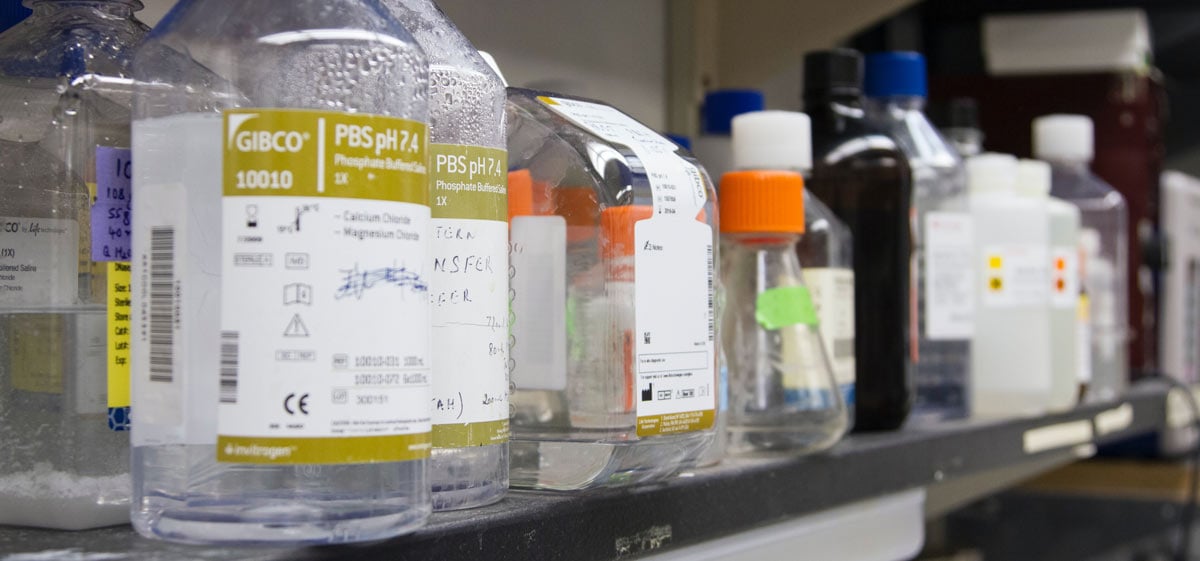- Insights
- The Solutionists Hub
- Chemical compliance: What manufacturing companies need to know
Chemical compliance: What manufacturing companies need to know

The use of potentially hazardous chemicals is unavoidable in some manufacturing operations. That’s why regulations are in place to make sure people and the environment are protected from dangers linked to the production, disposal and use of these chemicals. Just like with all regulations – whether they’re related to conflict minerals or carbon emissions – failing to comply can lead to significant fines or even harsher punishments for your company.
Chemical regulations vary around the world, but some key examples are the USA’s Toxic Substances Control Act (TCSA) or the EU’s REACH and RoHS regulations. Let’s take a look at what these EU regulations involve:
REACH – This is the Registration, Evaluation, Authorisation and Restriction of Chemicals Regulation. It came into force in 2007, and applies to all kinds of components and products sold in the EU, with a small number of specific exceptions. It mandates that companies must audit their products to find out whether they contain any particularly hazardous chemicals, labelled ‘substances of very high concern’ (SVHCs). If SVHCs must be used in the product, the manufacturer has to gain authorization from authorities and clearly label the hazardous chemicals on the product packaging.
A total of 233 chemicals have been categorised as SVHCs, including certain PFAS chemicals that can damage human health and the environment.
RoHS – The Restriction of Hazardous Substances directive focuses on reducing the quantities of hazardous substances in electronics and electrical equipment. The 10 chemicals and substances regulated by this directive include heavy metals like lead and mercury. RoHS prevents manufacturers selling products if they contain high concentrations of these substances, but there are a few specific exemptions.
These product regulations are all backed up by SCIP – a centralized EU database of millions of products that contain significant quantities of SVHCs. It’s designed to provide transparency and make it easy for consumers and waste management companies to safely use and dispose of products.
How much these regulations and others like them affect your business is hard to say – it depends on your location, industry, and the type of components and products you work with. That's why complying with regulations and maintaining your sustainable credentials requires taking a careful look at your supply chain – start with these questions.

Do chemical regulations only apply to chemicals?
No. It’s true that the regulations apply to isolated chemicals in their purest form, but they also apply to products that contain them – for example, water-resistant fabrics treated with specific PFAS chemicals.
What chemical regulations do I need to comply with?
Your chemical compliance requirements depend on the type of products you manufacture and the applicable national regulations and laws in your country. Companies need to assess which laws impact their products and their intended markets.
How do I ensure chemical compliance?
Companies must continuously update their compliance data with new information about the substances and chemicals that go into their products. In practice, that means working extensively with suppliers and constantly getting the most up-to-date information.
What are the risks of not complying?
Warnings are a common consequence for first-time breaches. But serious or repeated non-compliance can lead to fines, product recalls, reputational damage among consumers and even product bans and restricted market access.
How Bufab provides peace of mind
- All the components Bufab supplies comply fully with the REACH and RoHS regulations, at a minimum. The result is that our customers can feel confident they will always comply with these stringent regulations.
- We also take responsibility for handling chemical compliance for our customers – overseeing the SCIP registration requirements for components and providing customers with required compliance information.
If you're concerned about your chemical compliance work and how it fits in with a smooth supply chain and effective sustainability initiatives, get in touch with us below for advice. And if you want to keep learning more, read our guide to sustainability in the C-parts supply chain to discover the other regulations that might affect your manufacturing operation in future.
Get new knowledge every week!
Related
-
By Sergio BrambilaSustainability targets and KPIs to implement in the purchasing department
-
By Kadi MeriväljaC-Parts Purchasing: Handling Your Sustainable Purchasing Policy
-
By Patrik Lundström TörnquistSustainability Challenges With C-Parts, and How to Manage Them
-
By Carina LööfSustainable C-Parts: What You Need to Know
-
By Niklas LindsköldCBAM: How will it affect European manufacturers?
-
By Niklas LindsköldHuman rights due diligence: Is your supply chain under control?
-
By Niklas LindsköldConflict minerals: How to avoid them in your manufacturing operation








